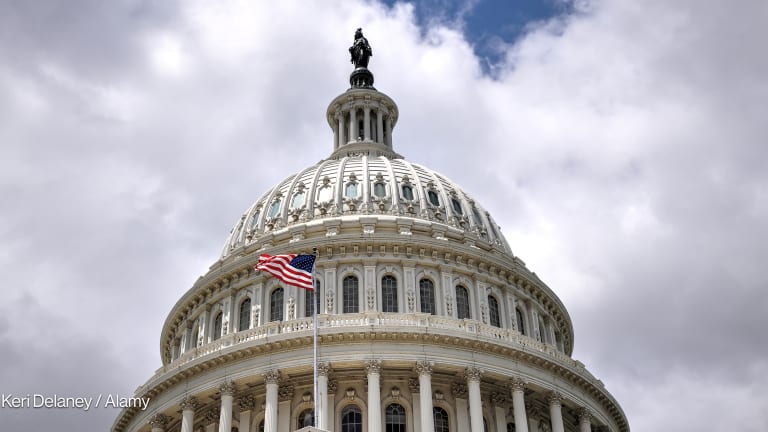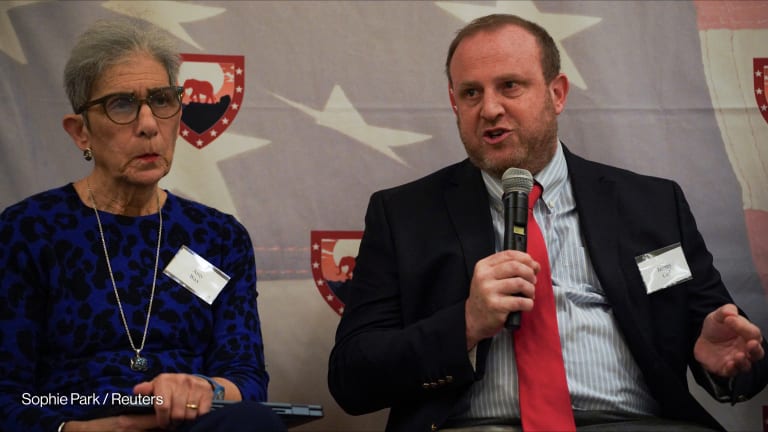
WASHINGTON — Adam Boehler looks poised to become the CEO of the soon-to-be-launched U.S. International Development Finance Corporation after a Senate confirmation hearing on Thursday.
Boehler, the administration’s nominee to lead the agency, was asked only a few questions and appeared to have the support of senators in attendance at the Senate Foreign Relations Committee hearing.
“The need for a nimble, strategic development finance agency is clear in today’s geopolitical landscape,” he said in his opening remarks. “The challenges facing less developed countries is vast; private capital is an essential ingredient in solving the problems that people in emerging countries grapple with every day, from water purification in India to energy in El Salvador, from a clinic in Cameroon to thousands of loans to women entrepreneurs throughout the world.”
Boehler, who is a relative unknown to the development community, has been serving as the director of the Center for Medicare and Medicaid Innovation and is a senior adviser to the secretary of the Department of Health and Human Services. He is also reportedly close with White House adviser Jared Kushner, who was his roommate for a summer in college.
Boehler is the founder and former CEO of Landmark Health, an in-home medical care company, was an operating partner at Francisco Partners, a global investment firm, and also worked at a private equity firm and a venture capital firm in the past.
At the hearing he highlighted that his first professional experience was in South Africa, working for the South African government’s Financial and Fiscal Commission.
Boehler said if confirmed, he is committed to working in partnership with USAID, as well as other federal agencies and U.S. allies internationally to advance the DFC’s work.
“DFC will be a critical tool in American foreign policy to address the growing influence of China and other authoritarian governments. American values: transparency, rule of law, respect for people and environment afford us a unique competitive advantage,” he said at the hearing.
Sen. Robert Menendez, the ranking member of the committee, raised a question several in the development community have about the new DFC — how it can take on the new requirements of the BUILD Act with essentially the same resources as the Overseas Private Investment Corporation.
Boehler said he “is a big believer in using what you have” and that he doesn’t see the DFC as independent from other U.S. government agencies and that he would work closely with USAID missions and U.S. embassies and international partners.
The U.S. DFC as it unfolded:
► Bipartisan bill gives US development finance a boost
► Support for new US development finance bill, even as some details are questioned
► BUILD Act for new US DFI sails through Senate committee vote
► US House of Representatives approves development finance bill
Menendez followed up by asking if he would answer truthfully when asked about issues such as resources moving forward, encouraging him to be honest because he had allies on the committee. Boehler said yes.
“I’d love to work closely with the committee as we think about resources going forward. It’s important to me, as I’m sure it is to you, that the DFC comes into being as this Congress intended, and I would work closely with you to ensure that,” Boehler said.
When asked about enterprise funds, Boehler said he is interested in them as a potential tool for the agency.
Sen. Tim Kaine, a Democrat from Virginia, asked Boehler how he intended to prioritize the Northern Triangle in the DFC’s work. Boehler said if he is confirmed as the agency’s first CEO, it will be a good opportunity to have a discussion with the administration about funding the region and that he would work closely with the committee in that effort.
Boehler was introduced and endorsed by two senators who do not sit on the committee — Sen. John Kennedy, a Republican from Louisiana and Sen. Sheldon Whitehouse, a Democrat from Rhode Island. Whitehouse called him “honorable, responsible, innovative and smart” and Cassidy said he has an “innovative mind” and is “ideally suited” for the job.
Also in the audience were several OPIC staff members, including acting CEO David Bohigian and former OPIC CEOs Elizabeth Littlefield, Rob Mosbacher, and Peter Watson.
Search for articles
Most Read
- 1
- 2
- 3
- 4
- 5








